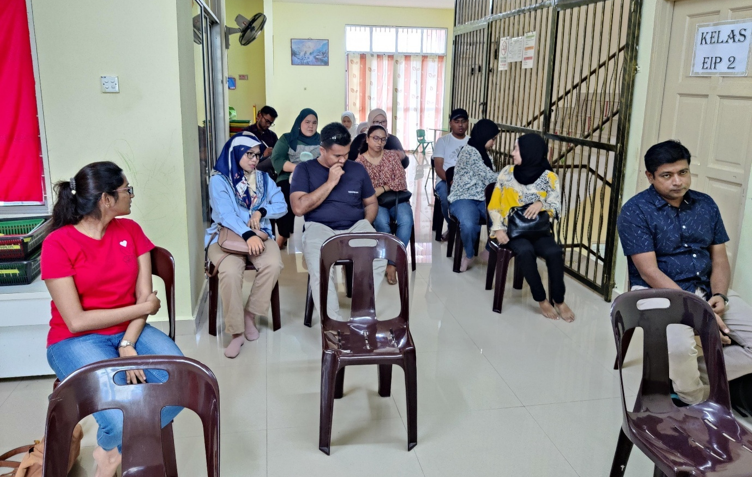MIRM conducts Psychological First Aid (PFA) Session for Parents of Neurodiverse Children

“The only thing worse than being blind is having sight but no vision.” – Helen Keller
The Make It Right Movement (MIRM) envisions transforming lives and enriching communities, with a special focus on marginalised groups, including neurodiverse children.
BACKGROUND
Amanda Kong, Community Development Manager of MIRM defined the concept of neurodivergent children as "children that have brains which work differently from the average person". As such, there is a need to adopt a different approach in educating these children especially in respect of mental health as these children or individuals may tend to be side-lined and ignored in terms of assistance, support and opportunities in society as they may be seen to be "difficult". As such, in light of today's context surrounding the issue of mental health, the issue arises where neurodiverse children should also be provided with the equal opportunity to seek assistance and support in terms of their mental health which are more catered to their needs.
PURPOSE
MIRM sought to address this issue by conducting a Psychological First-Aid ("PFA") workshop for the parents and caregivers of neurodiverse children, wherein participants consisting of parents/caregivers of neurodiverse children were trained how to:
1. Communicate effectively with neurodiverse people
2. Explain and breakdown concepts of emotions and feeling
3. Teaching neurodiverse children how to navigate their feelings
4. How to seek assistance on mental health issues, etc
These workshops were specifically aimed to provide emotional support, enhance coping skills, and promote resilience among the parents when dealing with their neurodiverse children.
WORKSHOP
In August 2023, MIRM hosted a PFA workshop for these parents in Melaka wherein approximately 15 parents of neurodiverse children engaged in dialogues and interactions surrounding the issue of mental health amongst neurodiverse people. These capacity-building sessions aimed to equip participants with essential skills to provide first-line mental health support to their children. The sessions also focused on practical strategies for addressing emotional and psychological needs and emphasised the importance of connecting families with relevant support services.
Amanda said that by enhancing the parents'/caregivers' ability to manage stress and crises, this would significantly contribute to the well-being of neurodiverse children and their families.
To find out more about what MIRM does, visit https://mirm.my/ today.